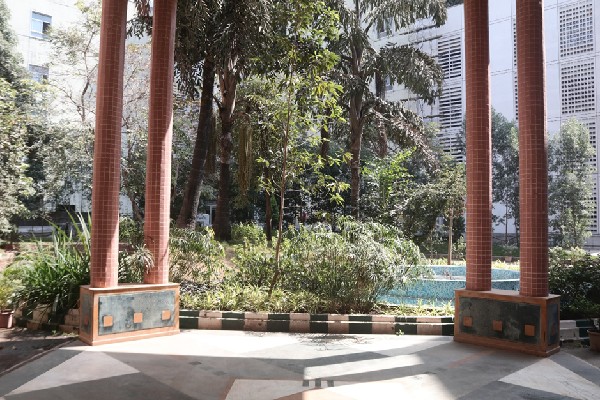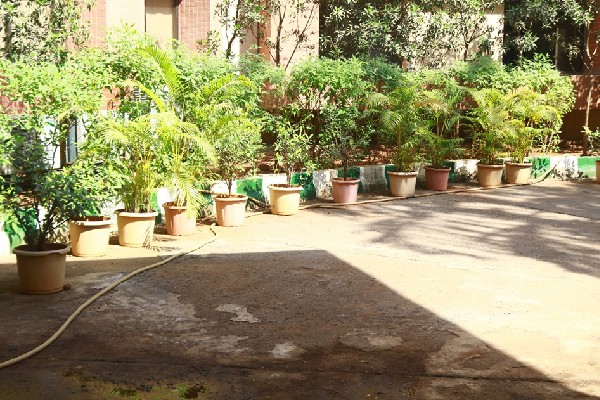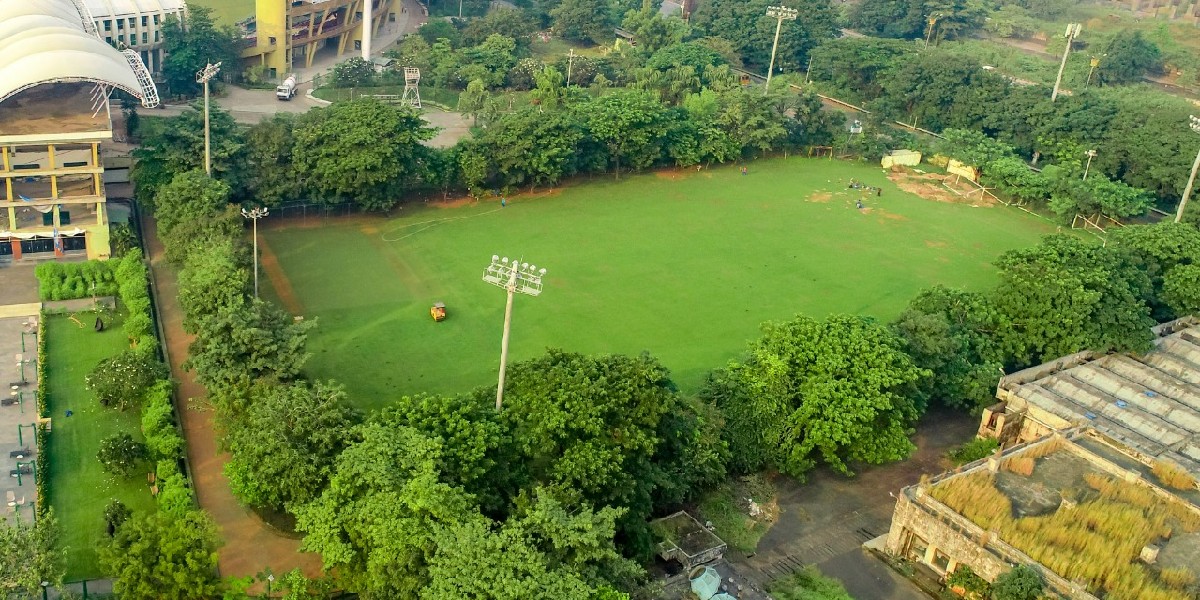Main Content
Green Campus
The importance of Green cover and its relevance in the present day context is a subject that is pertinent and crucial for sustainable development especially in the context of urbanization. The Urban Green Guidelines 2014 Town and Country Planning Organization, Government of Indian Ministry of Urban Development lays down the guidelines and requisite greening of urban areas in an effort to minimize and mitigate the effects of concretization of the otherwise green areas including forests and agricultural lands.
Buildings have extensive direct and indirect impacts on the environment. During their construction, occupancy, renovation, repurposing, and demolition, buildings use energy, water, and raw materials, generate waste, and emit potentially harmful atmospheric emissions. These facts have prompted the creation of green building standards, certifications, and rating systems aimed at mitigating the impact of buildings on the natural environment through sustainable design.
Development and sustenance of green cover should go hand in glove and one should not be compromised for the other. The campus green cover drive across universities globally is an initiative to sensitize the younger generations on the necessity of a compensator green cover and plantations. AICTE has also called for a Clean and Smart Campus initiative across all the universities in India.
The rapid increase in all forms of wastes disposed thoughtlessly and the consumption of depleting resource is a global problem. The environmental issues, nowadays, remain at the core of the policy of educational institutions. The people associated with the organisation need to have environmental awareness to safeguard our environment. In today’s scenario the young generation is highly inclined in taking self-responsibility to protect our environment. The educational institutions have taken this opportunity to hone this awareness and motivate the students a sense of promoting green campuses and protecting environmental damages. There is a dire need to create mass environmental awareness to minimise the environmental damages. The university and school can collectively promote environmental awareness by many developmental plans and activities. University displays sensitivity to issues like climate change and environment degradation. Thus University takes lead in protecting our mother nature by adopting eco-friendly activities and to spread awareness by various programmes.
Alternate Sources of Energy
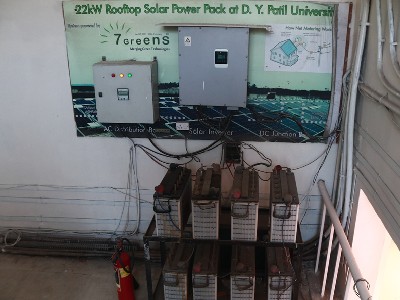
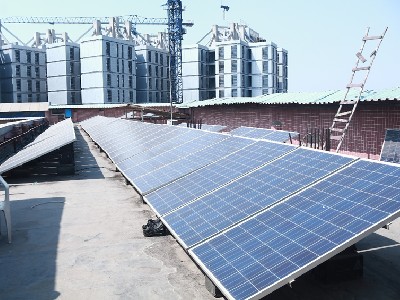
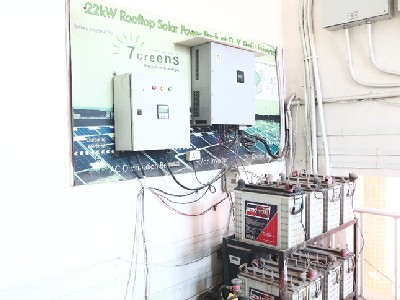
D.Y.Patil University strives hard to reduce the consumption of energy and has also adopted a range of alternate sources of energy. One measure in this aspect is its effort to tap the solar energy to minimise carbon emission. Currently, there is 208 KWp roof top PV Solar plant installed in the university campus for generation of electricity and also connected with grid. On an average 25000 units per month is generated through solar production. All the hostels have been installed with ‘Solar Heating water system’.
Solar panels installed and operational on RAIT Roof top

Tranparent Ceiling for maximum utilisation of Natural Light .
Bio-Medical Waste at D Y Hospital
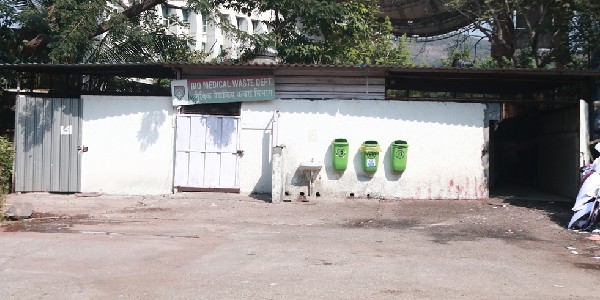
An MOU is signed with ‘Medical Pollution Control Committee’ authorized by Navi Mumbai Environment Protection & Pollution Control Board’ and the hazardous waste generated in the labs during the process of various experiments are collected by them in terms of M.O.E.F. directives & Bio-Medical Waste Management Rules – 2016 amended in 2018 & 2019.
1) Green Audit – Click Here To View
2) E Waste – Click Here To View
Solid waste segregation at campus
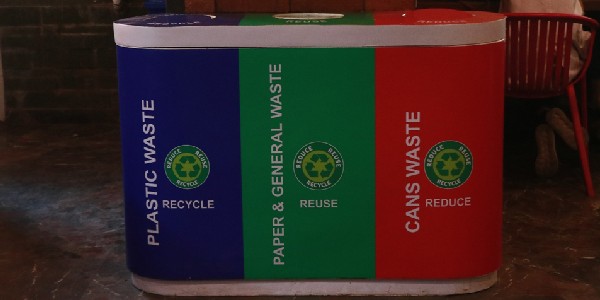
The university has an integrated waste management system to ensure clean and green campus. Non-valuable solid waste is disposed off with the help of NMMC’. The waste generated are segregated as wet and dry waste at the initial stage by collecting them in green and blue dustbins respectively, which is in turn collected by the house-keeping staff of the university every morning and stored at the central disposal yard.
E-Waste management
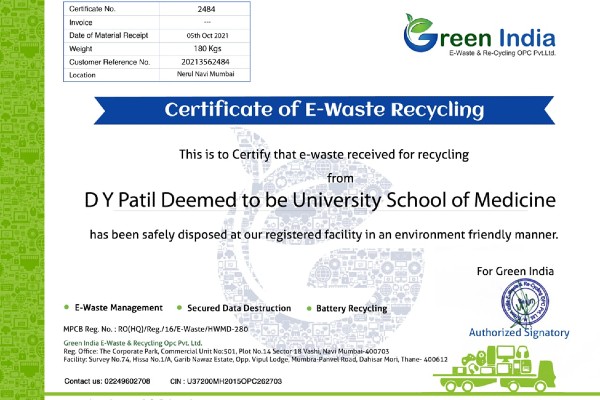
D.Y.Patil University has tied-up and signed an MoU with EWRI (E-Waste Recycle India) an authorised agency by Govt of Maharashtra for e-waste collection and recycling.

Compost Units
Bio-degradable wastes generated in the university is decomposed through two following methods namely, NADEP compost and Vermi compost. These units help to decompose waste into organic nature and gives a practical exposure to the students at School of Agriculture.
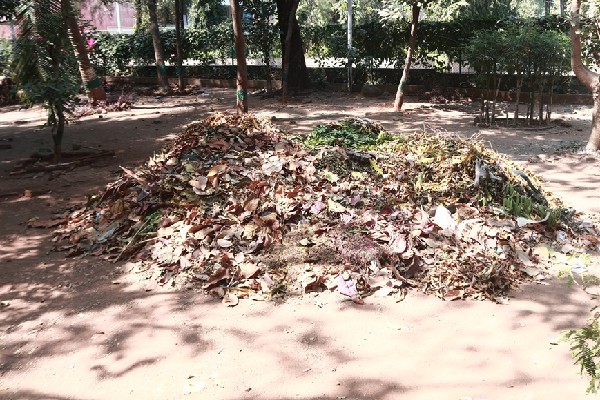
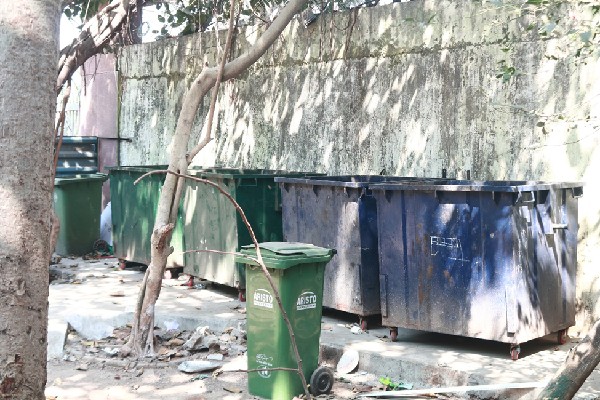
Water Re-cycling
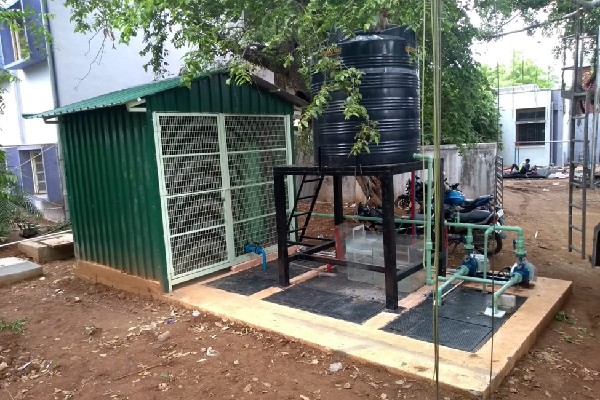
Wastewater generated through various sources is treated through Sewage Treatment Plant (STP) and then the ultra-treated water is used for irrigation and construction purposes.
Rain Water Harvesting
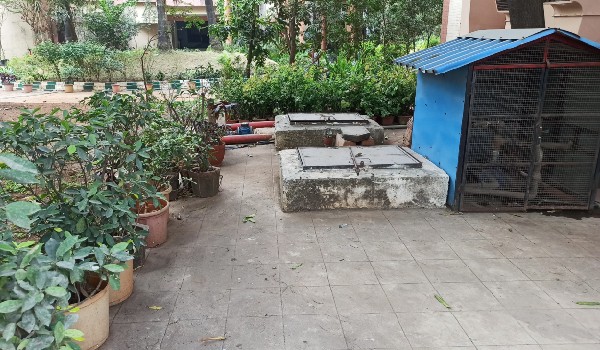
Wastewater generated through various sources is treated through Sewage Treatment Plant (STP) and then the ultra-treated water is used for irrigation and construction purposes.
Hazardous Waste
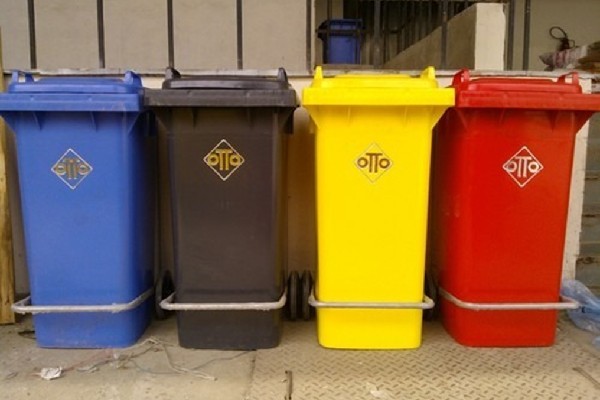
The university has registered itself with Pollution Control Board and
strictly follows the norms of Management and Trans boundary Movement Rules – 2016.
Wastewater
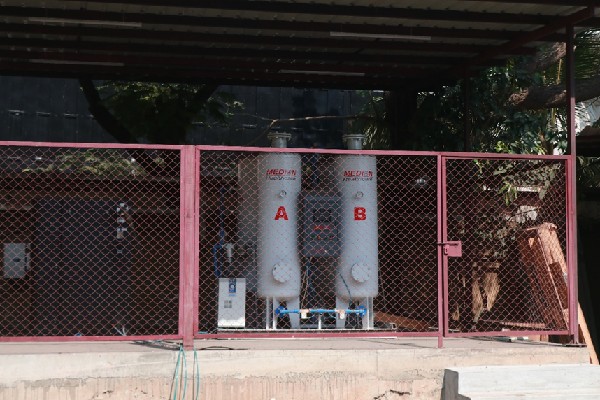
Liquid wastes collected from various Academic blocks, Administrative blocks and hostel buildings is diverted to STP for treatment and stored in underground tank, which is later used for irrigation and other construction activities.
Glimpse of University campus
Herbal Garden
Herbal Garden - Medicinal plants play a major role and constitute the backbone of Ayurved. The Institute has maintained a unique Herbal garden with a Greenhouse installed in an area of 10,000sq. ft. For the purpose of demonstration and educating the students as well as the general public, a Herbal Garden has been developed over 87120 sq.ft. of land with a distinct Green house which exhibits varieties of plants on aesthetically designed beds maintained by latest fogging system .There are approximately 267 species and 3203 number of plants and a unique Nakshatra vana, Raashi vana to educate the importance of medicinal plants through traditional astrological aspects.
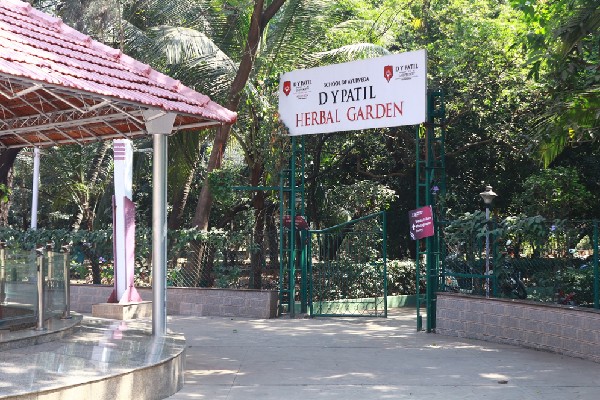
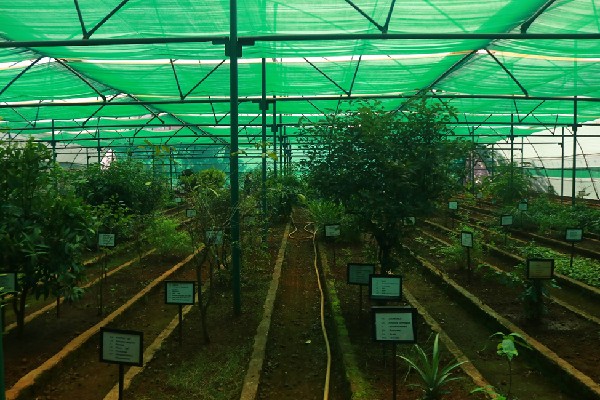
Bio Gas Plant at Campus
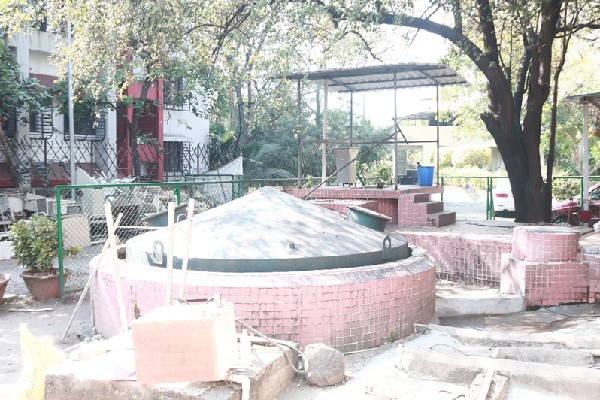 Biogas typically refers to a mixture of different gases produced by the breakdown of organic matter in the absence of oxygen. Biogas is produced by anaerobic digestion with methanogen or anaerobic organisms, which digest material inside a closed system, or fermentation of biodegradable materials. Biogas can be produced from raw materials such as agricultural waste, manure, municipal waste, plant material, sewage, green waste or food waste. It is a renewable energy source and, in many cases, exerts a very small carbon footprint. Biogas is primarily methane (CH4) and carbon dioxide (CO2) and may have small amounts of hydrogen sulfide (H2S), moisture and siloxanes. The gases methane, hydrogen, and carbon monoxide (CO) can be combusted or oxidized with oxygen. This energy release allows biogas to be used as a fuel; it can be used for any heating purpose, such as cooking. It can also be used in a gas engine to convert the energy in the gas into electricity and heat.
Biogas typically refers to a mixture of different gases produced by the breakdown of organic matter in the absence of oxygen. Biogas is produced by anaerobic digestion with methanogen or anaerobic organisms, which digest material inside a closed system, or fermentation of biodegradable materials. Biogas can be produced from raw materials such as agricultural waste, manure, municipal waste, plant material, sewage, green waste or food waste. It is a renewable energy source and, in many cases, exerts a very small carbon footprint. Biogas is primarily methane (CH4) and carbon dioxide (CO2) and may have small amounts of hydrogen sulfide (H2S), moisture and siloxanes. The gases methane, hydrogen, and carbon monoxide (CO) can be combusted or oxidized with oxygen. This energy release allows biogas to be used as a fuel; it can be used for any heating purpose, such as cooking. It can also be used in a gas engine to convert the energy in the gas into electricity and heat.
Oxygen generation and storage system at the campus
Oxygen is the most important clinical gas used in health care centers and Hospitals. No modern hospital can manage without oxygen gas Generator. Pure oxygen is an essential resource in the operating room during anesthesia, for the respiration of patients, and in the intensive care or neonatal units.. Currently, hospitals buy oxygen from bulk medical oxygen plant Manufactures. The bulk oxygen is bought in both liquid and gaseous form.
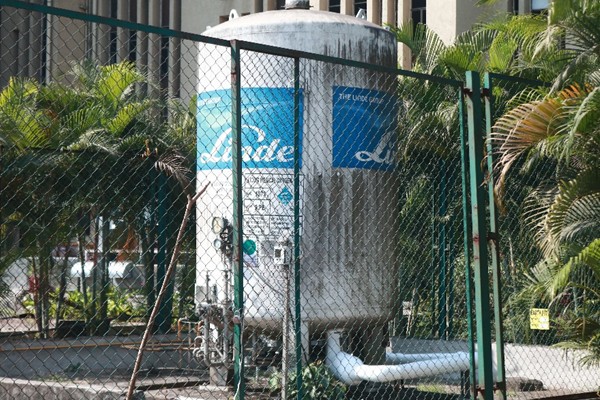
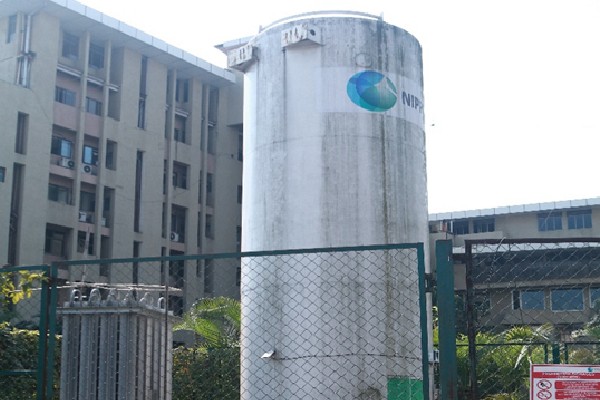
PNG used at the campus
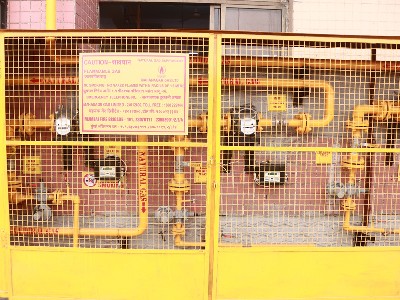
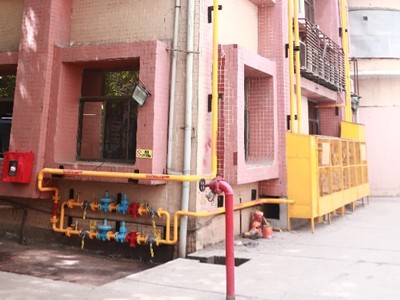
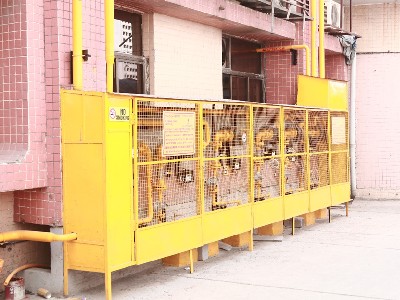
Convenience - Gas is continuously fed into the system so there are no hassles of refilling / changing the cylinder; it is piped and does not require any space to store, hence handling is easy, safe and secure. Economical - Higher savings than any other conventional fuel. Safe - Robust systems and processes as per international safety standards that match the best in the world, are practiced. PNG being lighter than air disperses easily and avoids spontaneous flammability. Consistent, reliable supply - MGL has got a track record of almost 100% reliability in its gas supply.
Tree plantation initiative around campus
